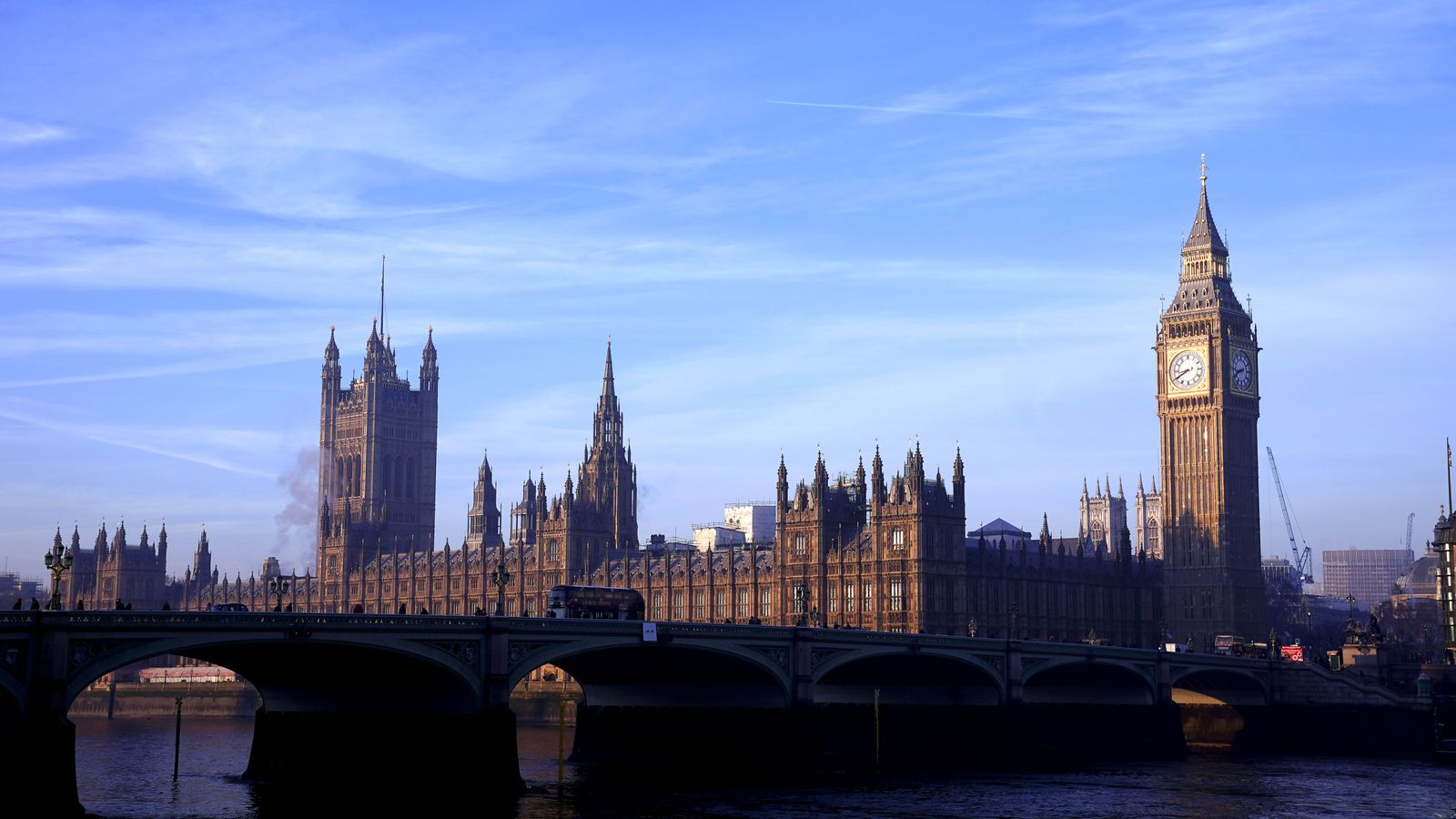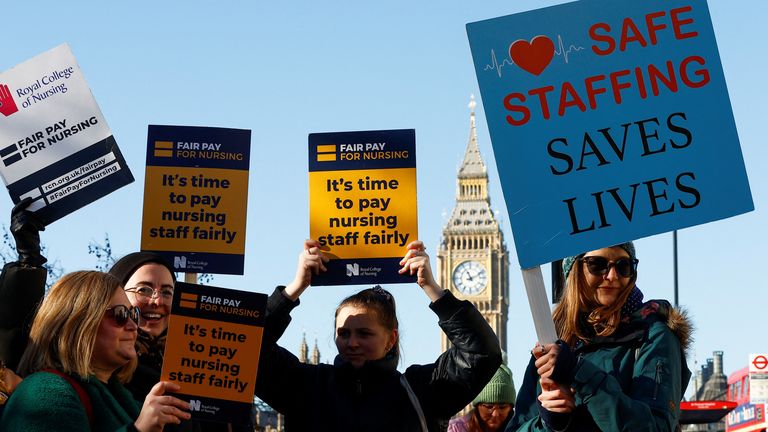MPs’ pay to increase by 2.9% raising their salary to £86,584
MPs will get a 2.9% pay increase from 1 April, taking their overall salary from £84,144 to £86,584.
It comes as the government is locked in many bitter industrial disputes with public sector workers demanding inflation-busting pay rises which ministers say they can’t afford.
MPs’ salaries are decided by the Independent Parliamentary Standards Authority (IPSA), which has a legal duty to set their pay independently of parliament and government.
Politics live: UK pays EU £2.3bn after losing trade dispute
IPSA said the annual adjustment to MPs’ basic pay for 2023-24 will be the same as the average increase in pay for public sector employees last year.
Richard Lloyd, IPSA’s chair, said: “In confirming MPs’ pay for next year, we have once again considered very carefully the extremely difficult economic circumstances, the government’s evolving approach to public sector pay in the light of forecasted rates of inflation, and the principle that MPs’ pay should be reflective of their responsibility in our democracy.
“Our aim is to ensure that pay is fair for MPs, regardless of their financial circumstances, to support the most diverse of parliaments.”
Mr Lloyd added: “Serving as an MP should not be the preserve of those wealthy enough to fund it themselves.
“It is important for our democracy that people from any background should see representing their communities in parliament as a possibility.”
The average regular pay growth for the private sector was 6.9% in August to October 2022, and 2.7% for the public sector, according to the Office for National Statistics (ONS).
Last year, nurses were offered a £1,400 pay award – equating to an increase of more than 5% for the average nurse.
But many public sector workers are demanding pay rises well-above this to keep up with record levels of inflation, which is currently at 10.5%.
The Royal College of Nursing (RCN) is demanding a pay rise of 5% above the rate of inflation as it claims its members have had a real terms pay cut of 20% since 2010.
Read More:
Strikes: Who is taking industrial action in 2023 and when?
Paramedics, teachers, postal workers, rail workers and civil servants are also striking for similar deals.
Unions have threatened to strike for as long as it takes to achieve their demands, but ministers in England have insisted they are not affordable.
Prime Minister Rishi Sunak is coming under pressure to resolve the disputes, after some strikes in Wales and Scotland were called off following revised pay offers.
Firefighters’ strikes have also been postponed after an increased pay offer of 7% backdated to July 2022, and then 5% from 1 July this year.
For all the latest business News Click Here


